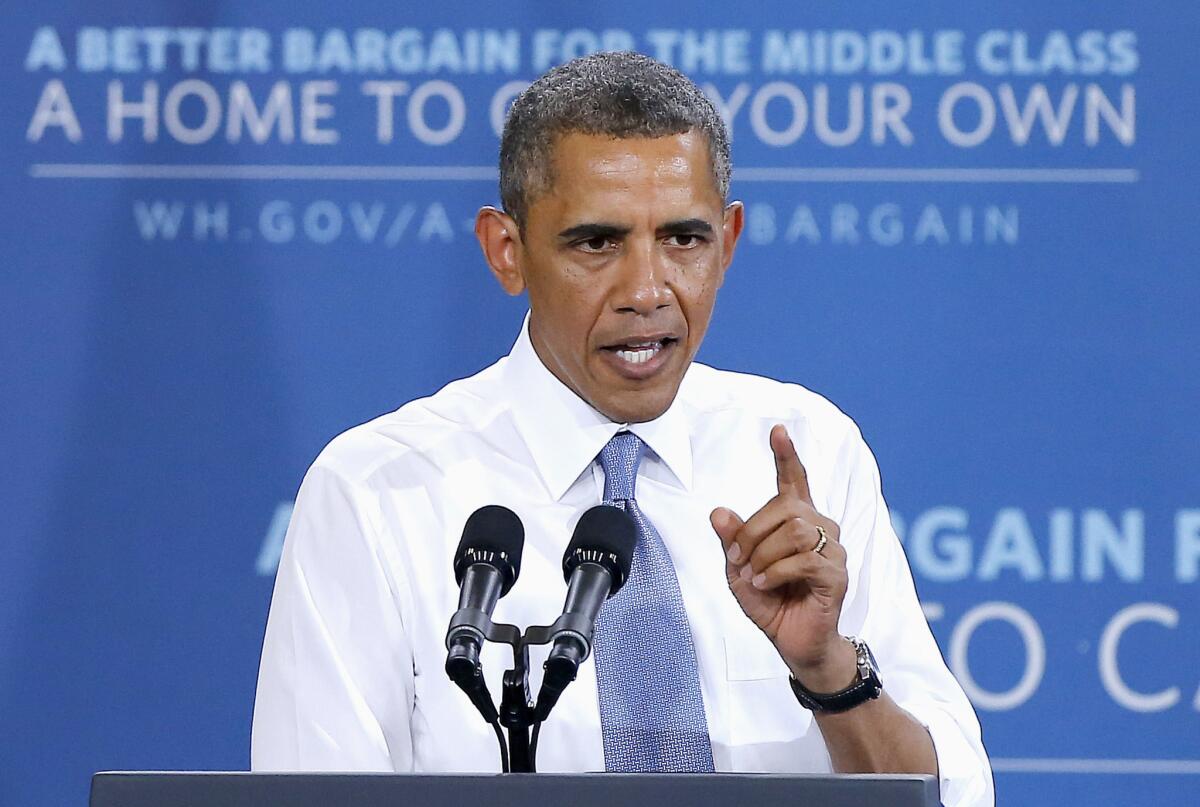Housing finance, beyond Fannie and Freddie

- Share via
President Obama this week joined lawmakers from both parties in calling for Congress to wind down Fannie Mae and Freddie Mac, the privately owned but government-backed companies that supply most of the funding for home mortgages in this country. There is now a clear consensus in Washington in favor of shrinking the government’s role in housing finance. The tough question that remains, though, is how far to go.
Fannie and Freddie have bought or guaranteed nearly half of the home loans outstanding in the United States. Those purchases and guarantees enable banks to sell the mortgages on their books to investors, freeing up the capital needed to make more loans. In ordinary times, their actions helped reduce the interest rate on home loans. And in downturns, their support helped keep mortgages available for new borrowers. A case in point: Since the financial market collapse in 2007, almost 90% of the country’s mortgages have been bought or guaranteed by the two companies.
Some critics blame Fannie and Freddie’s troubles on government mandates to finance more loans for lower-income Americans. But Wall Street firms started the rush into risky subprime and exotic loans; Fannie and Freddie just followed their competitors’ lead. The real problem with Fannie and Freddie was that the public assumed — correctly, as it turns out — that the government wouldn’t allow them to fail, making them more attractive to lenders and investors. They grew too big and took on far too much risk, precipitating a $187-billion bailout.
Fannie and Freddie demonstrate that Washington can’t use government-sponsored private companies to carry out its housing policies. The companies’ ability to privatize profits while sticking taxpayers with their losses poses an enormous and unacceptable moral hazard. And phasing them out won’t eliminate investors’ appetite for the mortgage-backed securities that supply capital for home loans.
Another lesson of the last recession, though, is that the government may be the only party willing to keep credit flowing when times get particularly tough. That’s why it makes sense to replace Fannie and Freddie with an entity that can guarantee mortgages when needed in a credit crunch or a time of punishingly high interest rates. A bipartisan group of Senate Banking Committee members has offered an intriguing idea: having lenders pay into a fund that would guarantee home loans of limited size, much in the way banks pay for insurance on their deposits. Whatever Congress decides, though, its support for housing should be explicit and targeted to those who need it.
More to Read
A cure for the common opinion
Get thought-provoking perspectives with our weekly newsletter.
You may occasionally receive promotional content from the Los Angeles Times.









